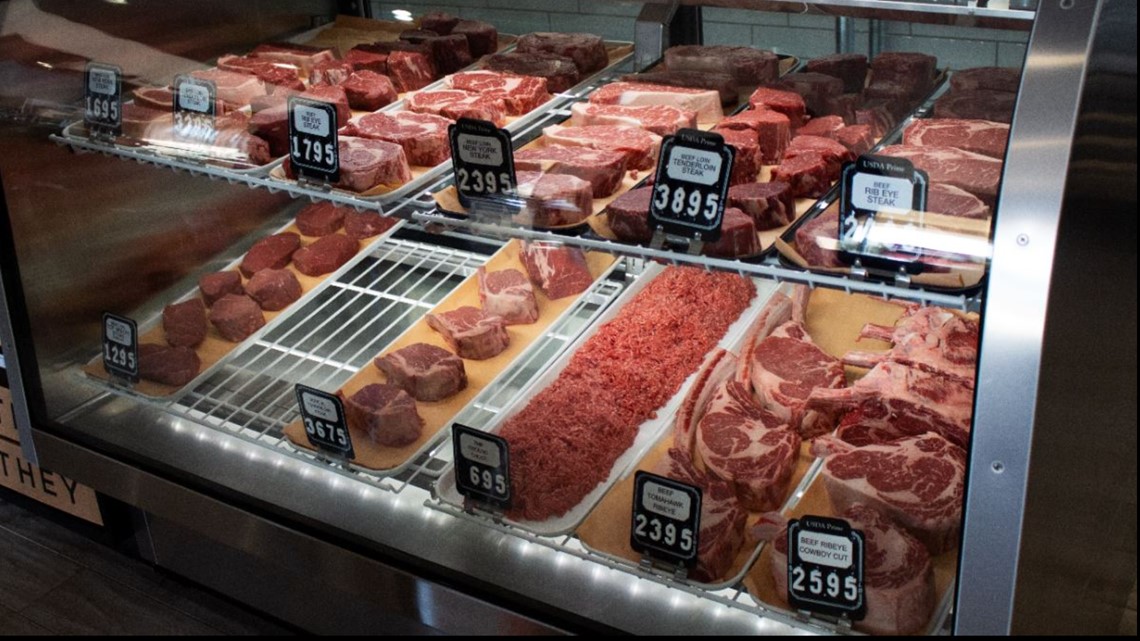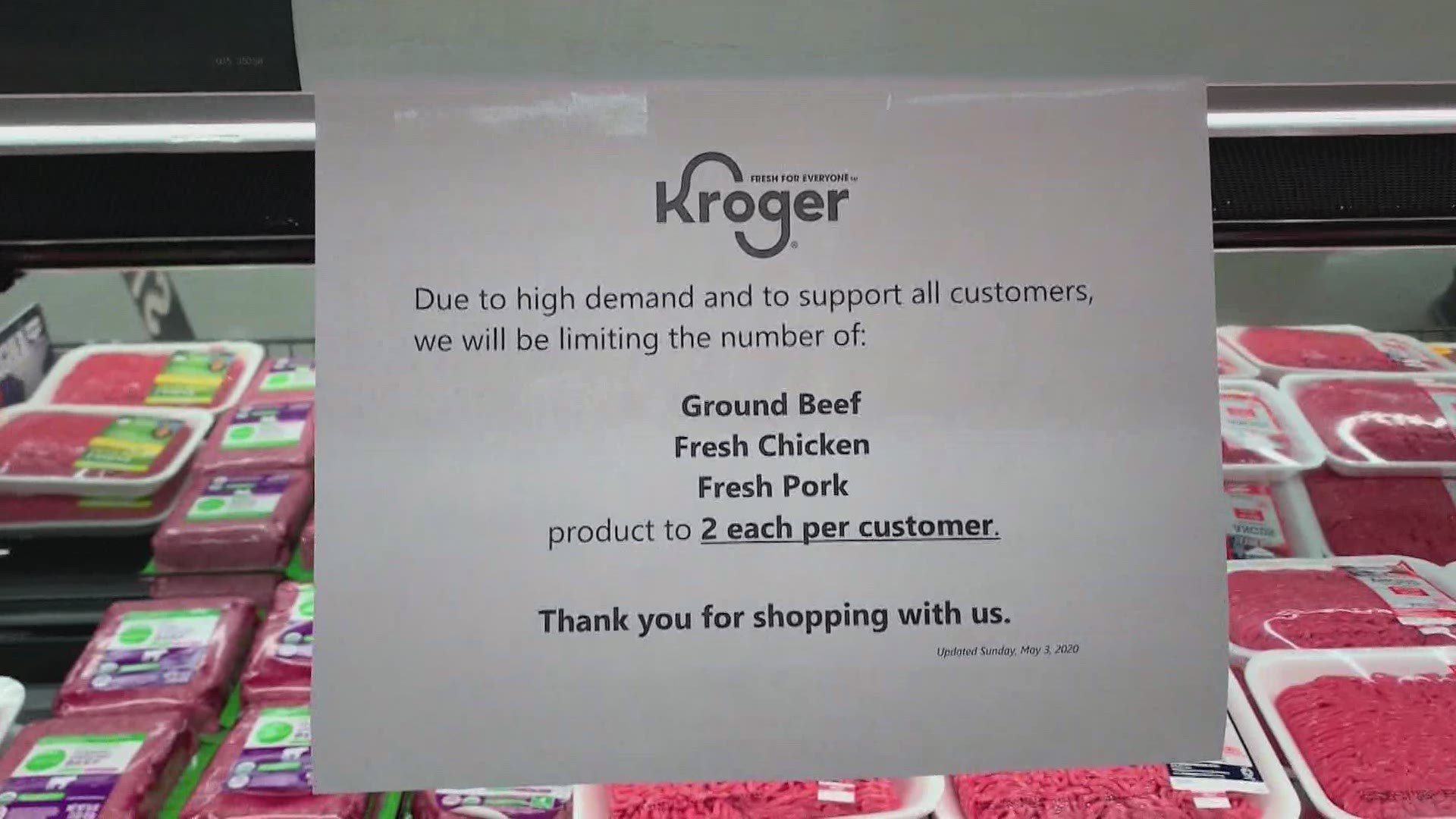FORT WORTH, Texas — It’s yet another of the countless side effects of the coronavirus: bare shelves at the meat counter inside your favorite market.
“The meat case is going to have less in it, and I think you’re going to see higher prices,” said David Anderson, professor of agricultural economics at Texas A&M University.
Anderson said the United States – and Texas in particular – isn’t really experiencing a meat shortage. A production stoppage is to blame.
“We were headed for record beef, pork, and chicken production before all this started,” Anderson said.
As of last Friday, the CDC reported at least 15 meat processing facilities in 19 states have experienced more than 4,900 coronavirus cases and 20 deaths.
Because cases are going up, production at these plants is either stopped or significantly slowed.
In turn, grocery stores are getting less meat from distributors.
So, they are limiting what customers can buy.
Kroger, Costco and Sam’s instituted new limits early this week. Limits at Tom Thumb and Albertsons took effect on Wednesday.
“It’s really the stores trying to make sure there’s product for everybody, so we don’t have another toilet paper deal,” Anderson said. “We don’t need that again!”
The Meat Board in Fort Worth is a gourmet butcher shop that Don Rea and several partners opened in January.


Rea spent more than 40 years in the meatpacking industry. His partners all have packing, processing or production backgrounds.
“It’s slowed down,” he said of current levels of production. “But, it doesn’t mean we’re out of meat.”
“There’s plenty of protein waiting to be packaged out there,” he said.
Rea credits a strong personal relationship with vendors who are making sure The Meat Board is well-supplied.
“I think we’re OK,” he said. “We’re not buying truckloads of product. Our vendors are saying, ‘Hey we know you have a small butcher shop, so if you order five cases of something, we’re going to make sure you get five cases.’ It’s built truly on relationships.”
He’s confident the processors will get back to normal capacity soon.
But the trickle-down to Texas’ farmers and ranchers is already being felt.
“When a plant shuts down, we lose demand for live animals,” Anderson said, “and so we have a glut of live animals, and it just plain drives the price down."
Rea said The Meat Board’s customers have remained loyal, and that’s helped them navigate the last couple of months.
But Anderson worries restaurants – particularly barbecue restaurants – might be hurting soon.
Because meat is harder to get, prices are skyrocketing, he said.
“We’ve actually doubled wholesale beef prices in the course of the last two months,” he said.
It’s impossible to know how long the interruption in the nation’s supply chain might last, but if companies are able to quickly adapt current facilities to provide more distance between workers or even open additional facilities, perhaps the effects will be temporary.
“It really is dependent on the path of the virus,” said Anderson. “Figuring out what works and how this runs its course is just plain going to take time.”

